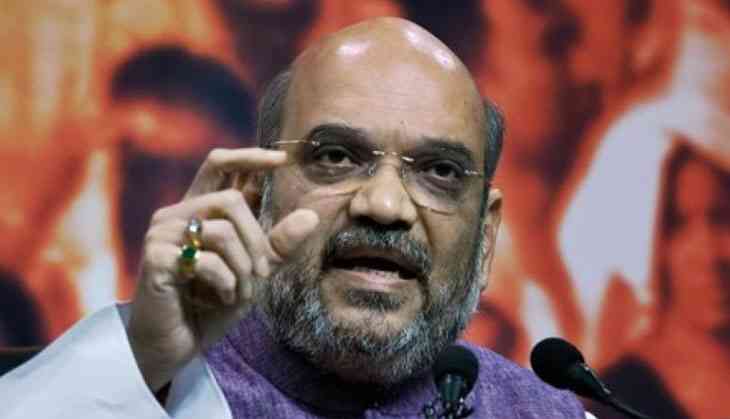From Emergency to Vande Mataram: When will BJP quit using WhatsApp-level diversionary tactics?

It is perhaps quite predictable for the BJP to be creating diversions upon diversions at this juncture. Along with this year's heavy electoral calendar – the Lok Sabha elections are less than a year away and the BJP is attracting intense scrutiny over its performance in power at the Centre.
The party has failed to keep many of the promises it made in the run up to the 2014 Lok Sabha polls. To avoid uncomfortable questions over this failure, it appears to have adopted a single-track approach of only attacking the Congress and other Opposition parties and that too, over non-issues.
In comes the campaign to hold press conferences across the country focused on recalling the excesses of the Emergency era. What, pray, do Indira Gandhi and Sanjay Gandhi's actions from four decades ago have to do with the Narendra Modi government's performance?
In the same league is BJP chief Amit Shah's speech delivered in Kolkata yesterday, delivering the first Bankim Chandra Chattapadhyay memorial lecture. Shah said in his speech that the Congress party's act of censoring Chattapadhyay's 'Vande Mataram' song led to India's partition in 1947.
"Had the Congress not made the mistake of censoring the national song Vande Mataram to just stanzas instead of the whole song, we could have stopped India from getting divided," Shah said.
"Historians blame the Khilafat movement or the Muslim League's two-nation theory for India's partition. But I am sure that the appeasement politics that Congress introduced by censoring Vande Mataram as a national anthem led to the country's partition in the long run," he added.
Chattopadhyaya wrote 'Vande Mataram' in 1870s and included it in his 1881 novel Anandamath. The song became a popular instrument for rousing nationalistic sentiment during the freedom struggle years later. Leading the struggle, the Indian National Congress adopted two stanzas from it as the "national song" in 1937. A committee consisting of Maulana Azad, Jawaharlal Nehru, Subhash Bose, Acharya Deva and Rabrindanath Tagore is believed to have recommended the adoption.
The remaining part of the poem was carefully avoided as it contained worship references to Hindu gods and goddesses, which might be problematic for people from other communities.
This was as secular a gesture as any and it is only to the credit of BJP's propaganda machinery that it has been able to find appeasement in this.
For a national song, it is important to inspire a collective sense of nationalism among those singing it, which explains the selection of Vande Mataram and the simultaneous omission of the controversial stanzas.
In fact, many have argued that the context behind the song, Anandmath's plot, had communal undertones and if the song was adopted in full, that would have certainly indicated widespread endorsement of the said communal sentiment.
However, the real question that Shah and his colleagues are trying to run away from is not whether Anandmath had a communal agenda or not. That question is – what has Anandmath, just like the Emergency, got to do with the Modi-government's performance?
Shah's focus on the Vande Mataram conspiracy is akin to the messages circulated by RSS sympathisers on social media platforms like WhatsApp. When will he and his party bid-goodbye to this WhatsApp-level discourse and address the real questions at hand?


